
Deniz ÜNVER
Independent Researcher
Environment pollution and climate change are some of the most complex issues that can cause severe problems such as migration, undermining economic growth and loss of health. For this reason, international cooperation is necessary to combat climate change and protect nature. In this sense, Türkiye conducts an environmental policy that provides international cooperation among different parties. Within this framework, Türkiye is party to several conventions on environmental issues to further contribute to the protection of the environment and combat climate change through international conventions on climate. Those conventions are the United Nations Convention to Combat Desertification, the Convention on the Protection of the Black Sea Against Pollution (Bucharest Convention), the Convention for the Protection of the Marine Environment and the coastal region of the Mediterranean (Barcelona Convention), the United Nations Framework Convention on Climate Change (UNFCCC) and the Kyoto Protocol and Convention on Biological Diversity.
First of all, Türkiye agreed to be a part of the United Nations Convention to Combat Desertification, which aimed to combat desertification and decrease the negative impacts of the drought, in 1997[1]. Türkiye adopted the Regional Implementation of Annex for the North Mediterranean of the Convention[2]. To further contribute, Türkiye organized the 12th Session Conference of Parties of the UN Convention to Combat Desertification in Ankara, in 2015 and became the president of the aforementioned summits for two years[3]. Thereafter, Türkiye established the Ankara Initiative, which has an objective of assisting the countries that are most affected by the drought and desertification[4]. Thus, Türkiye organized The World Day to Combat Desertification in Ankara, on June 17, 2019, to raise awareness of Desertification[5].
In addition to this, it is significant for Türkiye to prevent the pollution of the seas and protect the marine environment and coastal regions. Within this context, Türkiye has become a member of the Bucharest Convention and the Barcelona Convention. The Bucharest Convention, which was signed by Türkiye, Romania, Ukraine, Bulgaria, Georgia and Russia in 1992, was designed to take international action against the pollution in the Black Sea[6]. Within this framework, the Commission on the Protection of the Black Sea Against Pollution (Black Sea Commission) and its Permanent Secretariat were established[7]. The Black Sea Commission has been hosted by Türkiye since 2000[8]. To further contribute to the prevention of Black Sea Pollution, Türkiye became party to several Protocols of the Bucharest Convention such as Protocol on Protection of the Black Sea Marine Environment Against Pollution from Land-Based Sources, Protocol on Cooperation in Combating Pollution of the Black Sea Marine Environment by Oil and Other Harmful Substances, Protocol on the Protection of the Black Sea Marine Environment Against Pollution by Dumping, The Black Sea Biodiversity and Landscape Conservation Protocol[9].
Türkiye is also among the members of the Barcelona Convention, which was established in 1970, in Barcelona by the United Nations Environment Program (UNEP), since 2002 to prevent the pollution of the Mediterranean Sea[10]. Within this framework, Türkiye is party to several of its protocols such as Protocol for the Prevention and Elimination of Pollution in the Mediterranean Sea by Dumping from Ships and Aircraft or Incineration at Sea, Protocol for the Protection of the Mediterranean Sea Against Pollution from Land-Based Sources and Activities, Protocol Concerning Specially Protected Areas and Biological Diversity in the Mediterranean, Protocol Concerning Cooperation in Preventing Pollution from Ships and, in Cases of Emergency, Combating Pollution of the Mediterranean Sea, Protocol on the Prevention of Pollution of the Mediterranean Sea by Transboundary Movements of Hazardous Wastes and Their Disposal[11].
Furthermore, Türkiye has series of efforts in the fight against climate change. Firstly, Türkiye has been party to the United Nations Framework Convention on Climate Change (UNFCCC), which was the result of the Rio Conference in 1992[12]. The UNFCC, aiming to reduce greenhouse gas emissions (GHG), categorizes countries according to their GHG levels and expects countries to take action according to their GHG levels[13]. Although Türkiye is included in Annex I, which expects countries to reduce their GHG and report their actions against climate change, she does not have any difficulty as she is among the countries with the least GHGs[14]. Also, Türkiye has been a member of the Kyoto Protocol, prioritizing the fight against climate change through emission reduction targets in two different periods at two different levels, since 2009[15]. Despite being a member of this Protocol, Türkiye is again not obliged to inform about its reduction of GHGs. Thirdly, as an extension of the Kyoto Protocol, the Paris Agreement, established in 2015 to struggle with climate change, was adopted by Ankara. Türkiye, accepting this legally binding climate document, has prioritized reducing her national GHG emissions by 21 per cent by 2030[16]. The Turkish National Energy Plan was prepared by the target of net zero carbon emissions by 2053[17].
The protection of biological diversity is another area that Ankara values in its environmental policy. Within this regard, the Convention on Biological Diversity, which was formed to protect the biological diversity, was signed in 1992 and was adopted by Türkiye in 1996[18]. The relevant Turkish ministries have been making efforts to revise the “National Biological Diversity Strategy and Action Plan” through the Convention, necessitating the member countries to integrate policies into the national plans as well as providing information share, research on biodiversity and public training to further educate the public on how to protect the biodiversity[19].
Moreover, Türkiye has been making efforts to combat climate change and reduce carbon emissions due to the EU accession process. Indeed, the EU membership process has progressed the environment and climate change policies of Türkiye[20]. On December 21, 2009, the Chapter on Environment was opened to negotiations[21].
Apart from those, Ankara has its initiatives to prevent pollution and combat climate change such as the Zero Waste Policy to fight with climate change. The Zero Waste policy, established in 2017, received word wide attention as Antonio Guterres, the UN Chief, expressed his support for the project[22].
In conclusion, Türkiye is a party to several international conventions as it values international cooperation in environmental issues. This attests the fact that Türkiye attaches great importance to protecting the environment and combating climate change. While progressing to be an energy hub, it does not prevent her from carrying out an ambitious environment policy through international conventions or its initiatives.
*Image: https://www.aa.com.tr/en/environment/turkey-takes-promising-steps-towards-green-future/1684115
[1] ¨United Nations Convention to Combat Desertification¨, Ministry of Foreign Affairs of Türkiye, https://www.mfa.gov.tr/united-nations-convention-to-combat-desertification.en.mfa
[2] Ibid.
[3] Ibid.
[4] Ibid.
[5] Ibid.
[6] ¨Convention on the Protection of the Black Sea Against Pollution (Bucharest Convention)¨, Ministry of Foreign Affairs of Türkiye, http://https://www.mfa.gov.tr/convention-on-the-protection-of-the-black-sea-against-pollution-_bucharest-convention_.en.mfa
[7] Ibid.
[8] Ibid.
[9] Ibid.
[10] ¨The Convention for the Protection of the Marine Environment and the Coastal Region of the Mediterranean (Barcelona Convention)¨, Ministry of Foreign Affairs of Türkiye, https://www.mfa.gov.tr/the-convention-for-the-protection-of-the-marine-environment-and-the-coastal-region-of-the-mediterranean-_barcelona-convention_.en.mfa
[11] Ibid.
[12] ¨United Nations Framework Convention on Climate Change (UNFCCC) and the Kyoto Protocol¨, Ministry of Foreign Affairs of Türkiye, http://https://www.mfa.gov.tr/united-nations-framework-convention-on-climate-change-_unfccc_-and-the-kyoto-protocol.en.mfa
[13] Ibid.
[14] Ibid.
[15] Ibid.
[16] Yasemin Güler and Prashant Kumar, ¨Climate Change Policy and Performance of Türkiye in the New Harmonization Process¨, Frontiers, 2022, https://www.frontiersin.org/articles/10.3389/frsc.2022.1070154/full
[17] ¨Türkiye to Take Green Transformation Next Level, Net Zero Emissions for 2053¨, Daily Sabah, January 19, 2023, https://www.dailysabah.com/business/energy/turkiye-to-take-green-transformation-next-level-net-zero-emissions-for-2053
[18] ¨Convention on Biological Diversity¨, Ministry of Foreign Affairs of Türkiye, https://www.mfa.gov.tr/convention-on-biological-diversity.en.mfa
[19] Ibid.
[20] Yasemin Güler and Prashant Kumar, ¨Climate Change Policy and Performance of Türkiye in the New Harmonization Process¨, Frontiers.
[21] ¨Relations with the European Union in the Field of Environment¨, Ministry of Foreign Affairs of Türkiye, https://www.mfa.gov.tr/relations-with-the-european-union-in-the-field-of-environment.en.mfa
[22] Diyar Güldoğan, ¨Türkiye Taking Significant Steps Toward Renewable Energy: President Erdoğan¨, Anadolu Agency, September 10, 2023, https://www.aa.com.tr/en/asia-pacific/turkiye-taking-significant-steps-toward-renewable-energy-president-erdogan/2988504
© 2009-2025 Avrasya İncelemeleri Merkezi (AVİM) Tüm Hakları Saklıdır
Henüz Yorum Yapılmamış.
-
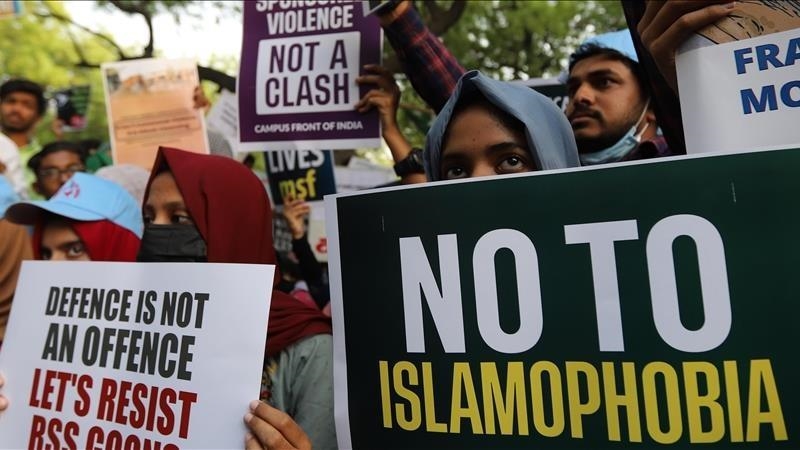 İSLAMOFOBİ: ÇİN ABD'YE KARŞI - 03.04.2023
İSLAMOFOBİ: ÇİN ABD'YE KARŞI - 03.04.2023
Deniz ÜNVER 03.04.2023 -
 ABD’NİN AFGANİSTAN’DAN ÇEKİLİŞİ VE ORTA ASYA POLİTİKASI - 19.07.2021
ABD’NİN AFGANİSTAN’DAN ÇEKİLİŞİ VE ORTA ASYA POLİTİKASI - 19.07.2021
Deniz ÜNVER 20.07.2021 -
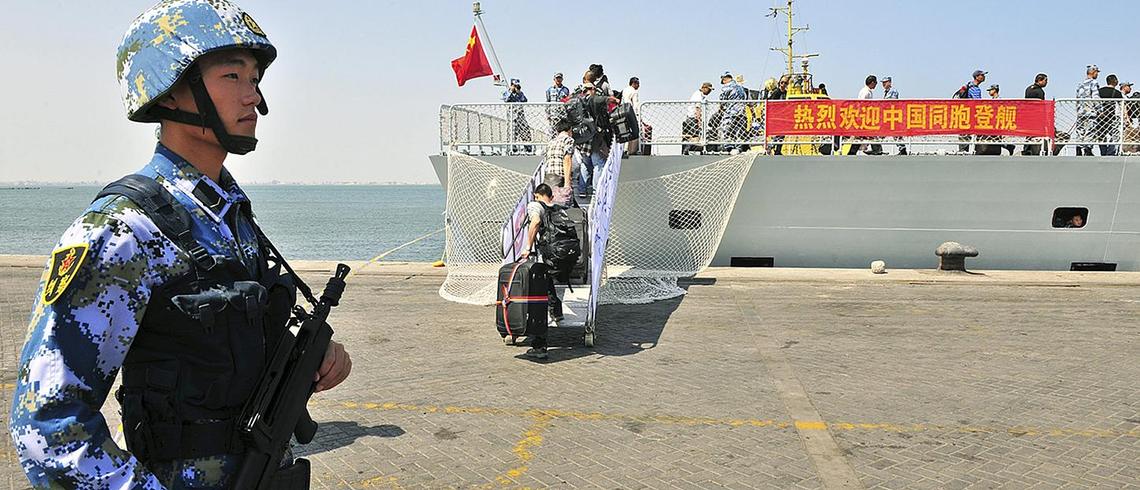 CHINA IN THE EASTERN MEDITERRANEAN - 11.10.2021
CHINA IN THE EASTERN MEDITERRANEAN - 11.10.2021
Deniz ÜNVER 11.10.2021 -
 BÖLGESEL KAPSAMLI EKONOMİK ORTAKLIK (RCEP): İLAVE BİR AÇIKLAMA - 21.03..2022
BÖLGESEL KAPSAMLI EKONOMİK ORTAKLIK (RCEP): İLAVE BİR AÇIKLAMA - 21.03..2022
Deniz ÜNVER 21.03.2022 -
 REGIONAL COMPREHENSIVE ECONOMIC PARTNERSHIP (RCEP): A FURTHER EXPLANATION - 10.02.2022
REGIONAL COMPREHENSIVE ECONOMIC PARTNERSHIP (RCEP): A FURTHER EXPLANATION - 10.02.2022
Deniz ÜNVER 10.02.2022
-
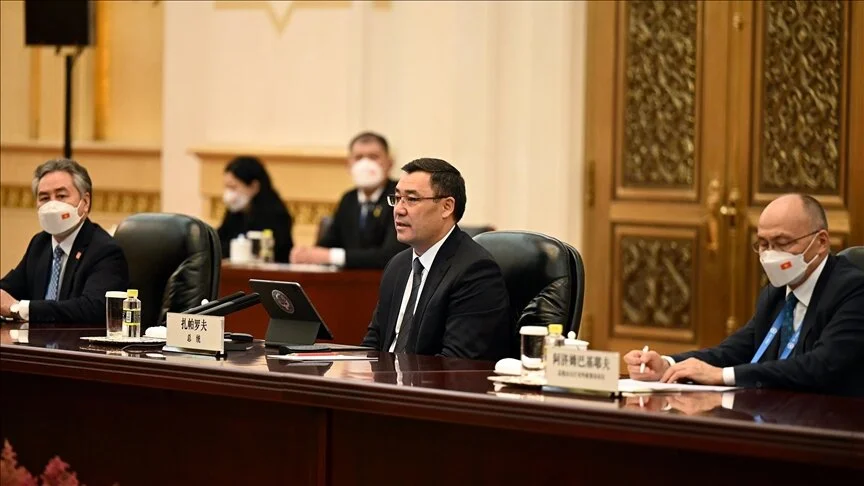 C5+C SUMMIT: WHAT DOES IT TELL ABOUT CHINA AND ITS RELATIONS WITH CENTRAL ASIA? - 31.05.2023
C5+C SUMMIT: WHAT DOES IT TELL ABOUT CHINA AND ITS RELATIONS WITH CENTRAL ASIA? - 31.05.2023
Deniz ÜNVER 31.05.2023 -
ROMANYA TÜRKLERİ
Erhan TÜRBEDAR 09.12.2012 -
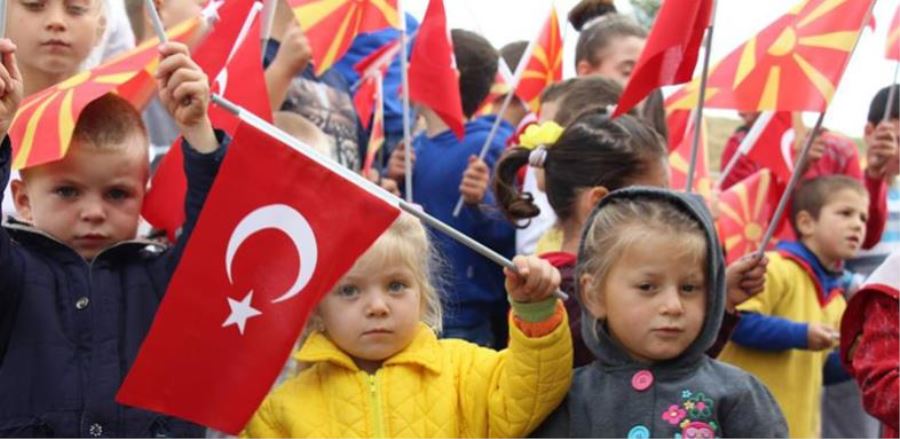 AB’NİN BALKANLARDA TÜRKİYE ENDİŞESİ - YENİ ADANA - 15.11.2022
AB’NİN BALKANLARDA TÜRKİYE ENDİŞESİ - YENİ ADANA - 15.11.2022
Hasan Sevilir AŞAN 17.11.2022 -
MEETING OF ECO (ECONOMIC COOPERATION ORGANIZATION) COUNCIL OF MINISTERS
Numan HAZAR 01.02.2013 -
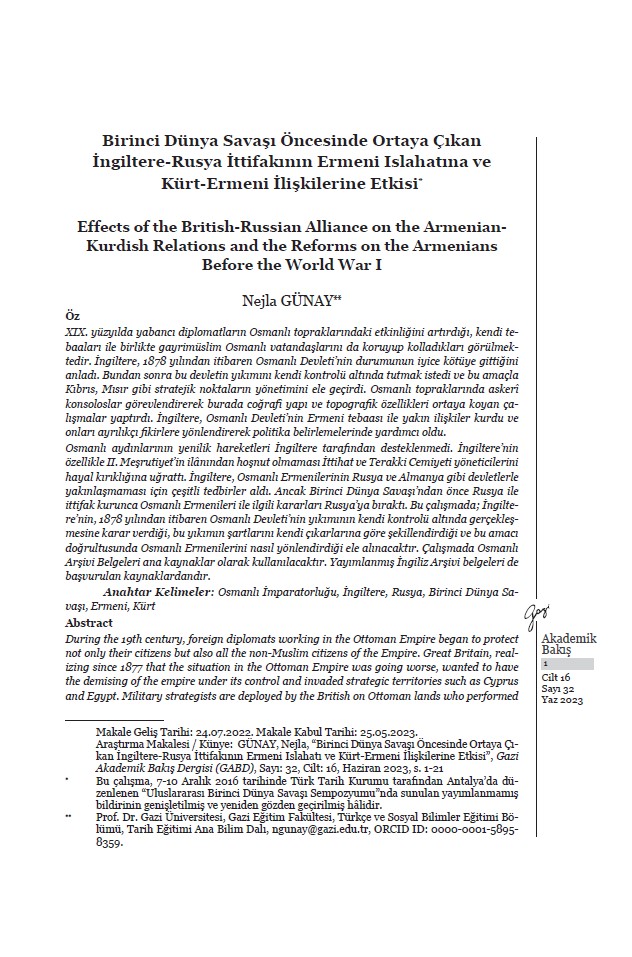 MAKALE DEĞERLENDİRMESİ: “BİRİNCİ DÜNYA SAVAŞI ÖNCESİNDE ORTAYA ÇIKAN İNGİLTERE-RUSYA İTTİFAKININ ERMENİ ISLAHATINA VE KÜRT-ERMENİ İLİŞKİLERİNE ETKİSİ” - 20.07.2023
MAKALE DEĞERLENDİRMESİ: “BİRİNCİ DÜNYA SAVAŞI ÖNCESİNDE ORTAYA ÇIKAN İNGİLTERE-RUSYA İTTİFAKININ ERMENİ ISLAHATINA VE KÜRT-ERMENİ İLİŞKİLERİNE ETKİSİ” - 20.07.2023
Tuğçe TECİMER 21.07.2023


